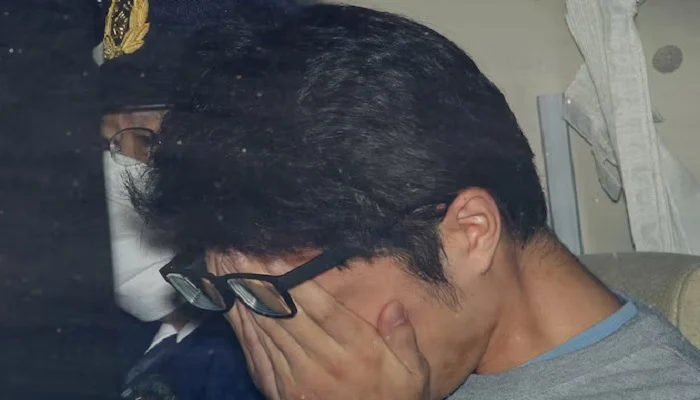
Japan Executes ‘Twitter Killer’ in First Execution Since 2022
Japan has carried out its first execution since 2022, ending the life of Takahiro Shiraishi, infamously known as the ‘Twitter Killer.’ Shiraishi was convicted of murdering nine people in 2017, a chilling case that gripped the nation and highlighted the darker side of social media. This article explores the background of the case, the implications of Shiraishi’s execution, and the broader discussions it has sparked on capital punishment and social media use in Japan.
The Case of the ‘Twitter Killer’
Takahiro Shiraishi, a 30-year-old man, was arrested in 2017 for the gruesome murders of nine individuals, including eight women and one man. These crimes were committed over a span of three months, during which Shiraishi used Twitter to lure his victims, who had expressed suicidal thoughts on the platform. Posing as a sympathizer, he offered them a place to die without fear or pain, only to murder them upon meeting.
The case sent shockwaves through Japan, a country known for its low crime rates and strong social fabric. It underscored vulnerabilities in social media platforms where individuals with malicious intent can exploit those in distress. Shiraishi’s trial began in 2020 and concluded with a death sentence in December of the same year, reflecting the heinous nature of his crimes.
Execution and Legal Process
Shiraishi’s execution was carried out by hanging, a method employed in Japan for capital punishment. Before the execution, he had been held in solitary confinement at the Tokyo Detention House. The decision to proceed with the execution was made following the dismissal of appeals by Shiraishi’s defense team, which argued that some of the victims had consented to die.
The Japanese legal system is known for its stringent procedures and the careful consideration of capital cases. Executions are rare and typically reserved for the most severe crimes. Shiraishi’s case met these criteria, with the public and judiciary recognizing the calculated and premeditated nature of his actions.
Public and International Reactions
The execution of the ‘Twitter Killer’ has reignited the debate on capital punishment in Japan. Domestically, public opinion largely supports the death penalty, especially for egregious crimes such as those committed by Shiraishi. However, human rights organizations and some international observers continue to call for its abolition, citing ethical concerns and the potential for judicial errors.
The case also highlights the role of social media in modern society, raising questions about platform responsibility and user protection. The ability of Shiraishi to manipulate Twitter for such malicious purposes has prompted discussions on enhancing online safety measures and better support for individuals expressing mental health struggles online.
The Role of Social Media
The Shiraishi case serves as a grim reminder of the potential dangers lurking in the digital world. Social media platforms like Twitter, while offering avenues for expression and connection, can also be exploited by those with harmful intentions. This case has prompted a reevaluation of how these platforms monitor and respond to distress signals from users.
In response, there have been calls for social media companies to implement more robust safety measures, including improved algorithms to detect harmful content, better reporting mechanisms, and partnerships with mental health organizations to provide timely support to those in need. The Shiraishi case underscores the need for a collaborative effort between technology companies, mental health professionals, and law enforcement to create a safer online environment.
Capital Punishment in Japan
Japan is one of the few developed nations that continues to practice capital punishment, with strong public support for the death penalty. The execution of individuals like Shiraishi tends to reinforce this support, especially in high-profile cases involving particularly brutal crimes. However, the debate on the morality and effectiveness of capital punishment persists, with advocates for abolition arguing for life imprisonment as a more humane alternative.
The government’s stance on the death penalty remains firm, citing its deterrent effect and alignment with public sentiment. Nonetheless, each execution invites scrutiny and sparks discussions about potential reforms in the criminal justice system.
Moving Forward
The execution of the ‘Twitter Killer’ marks a significant moment in Japan’s criminal justice history. As the nation reflects on this case, it serves as a catalyst for broader discussions on the balance between justice and human rights, the responsibilities of social media platforms, and the measures needed to protect vulnerable individuals in an increasingly digital world. The lessons learned from this case will likely shape future policies and public attitudes towards crime and punishment in Japan.







